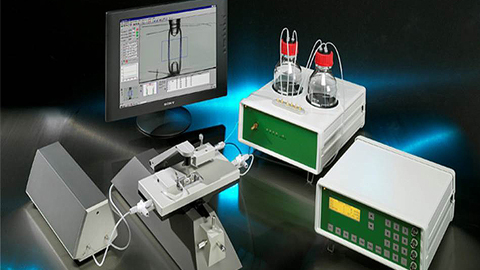Blood vessels also affected by Alzheimer's disease

13/03/2018
Researchers from the Institute of Neuroscience of the Universitat Autònoma de Barcelona (INc-UAB) demonstrate for the first time that anxiety and problems with blood vessels present a close relationship with Alzheimer's disease, which particularly affects females.
The study, conducted with mice and published in the Journal of Alzheimer’s Disease, provides new data to an emerging line of research related to this pathology, which broadens the current research focus in neuroscience to include explorations that go beyond the brain and focus on the cardiovascular system.
“Vascular disease resulting from oxidative stress and inflammation is an emerging concept in the study of Alzheimer's disease which is gaining clinical interest, given that subsequent cardiovascular insufficiency can alter the blood flow distribution to different organs and tissues, including the brain, which can worsen a pathology related to this type of dementia” highlights Dr Francesc Jiménez-Altayó, researcher at the Department of Pharmacology, Therapeutics and Toxicology and lead author of the paper.
The research, directed by Dr Lydia Giménez-Llort, Director of the Unit of Medical Psychology at the UAB Department of Psychiatry and Forensic Medicine, provides the first evidence that mice of advanced ages suffering from Alzheimer's disease present substantial alterations in small blood vessels, which are essential in nourishing different organs and tissues and in the regulation of blood pressure.
“The study specifically demonstrates that the sex of the mice is a determining factor. It is specifically the female mice which show more pronounced vascular alterations, which suggests that women of advanced ages suffering from Alzheimer's disease may suffer more from cardiovascular malfunctions", says Dr Frances Jiménez-Altayó.
The characteristics of small arteries were studied under different physiological conditions. Further research revealed that these vascular changes appear in both the vascular structure and function, which suggests an abnormal distribution in peripheral blood flow.
Researchers also assess animal behaviour to determine effects at cognitive and emotional level. This allowed them to discover the existence of a strong relation between the vascular parameters analysed - structure, elasticity, function - and different patterns of anxiety in mice models of Alzheimer's, but also in mice ageing normally.
“Although we must be cautious with these results, the correlation of behaviours propose the existence of direct or indirect relations between conduct and the function of peripheral arteries. These interactions may be able to explain the anomalies of the neuro-immuno-endocrine system, which regulates the performance of different organs and tissues, which we already described in previous studies using male and female mice in initial and advanced stages of the disease”, emphasises Dr Lydia Giménez-Llort.
“In addition, the fact that the study also provides evidence indicating a clear relation between a variety of variables which make up anxious behaviour in animals and properties of peripheral blood vessels is a discovery which contains important implications which surpass the area of research into Alzheimer's disease”, she concludes.
Original article:[]F Jiménez-Altayó, J Sánchez-Ventura, E"Crosstalk between Peripheral Small Vessels Properties and Anxious-like Profiles: Sex, Genotype and Interaction Effects in Mice with Normal Aging and 3×Tg-AD mice at Advanced Stages of Disease. Journal of Alzheimer’s Disease (2018) 00, 1–11. doi: 10.3233/JAD-171019.
____________________________________________________________________________
*A Health Research Fund (FIS) Project of the Institute of Health Carlos III - General Sub-direction of Research Assessment and Promotion (SAF2014-56111-R), co-funded by the European Regional Development Fund (ERDF) and the Quality Research Groups 2017-SGR- 645 and UAB-GE-260408.